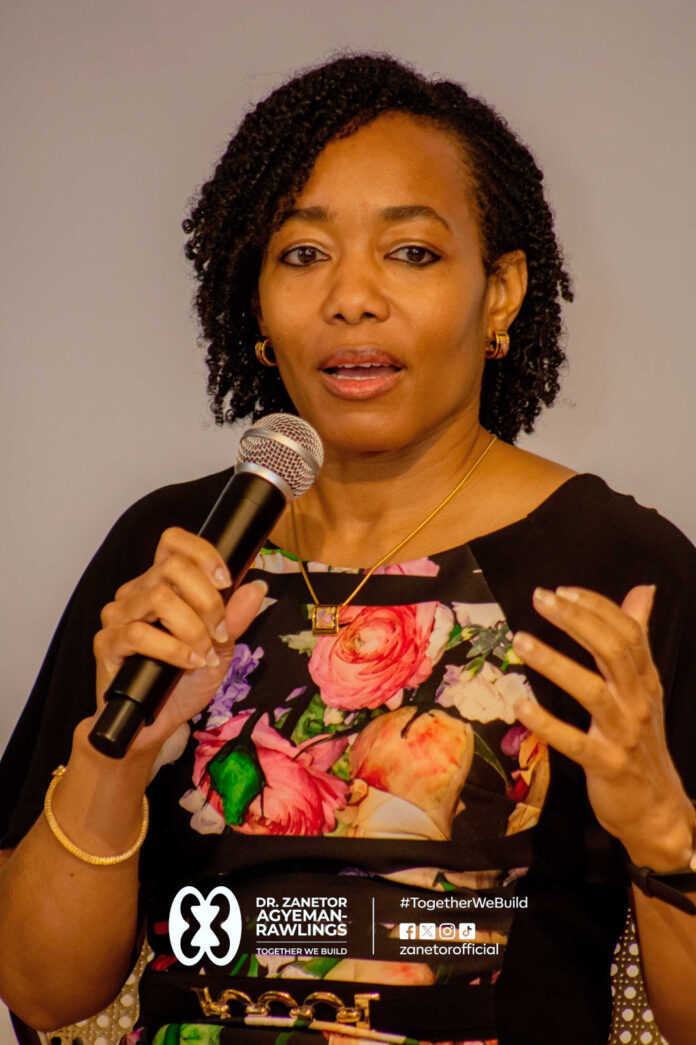The Member of Parliament for Klottey-Korle and Chairperson of Parliament’s Security and Intelligence Committee, Dr. Zanetor Agyeman-Rawlings, has proposed the establishment of a Maritime Security Fund to strengthen Ghana’s fight against piracy and other maritime crimes.
The proposed fund, she said, should be financed through a portion of port charges to support enforcement operations, technological upgrades, community engagement, and coastal surveillance infrastructure.
Dr. Agyeman-Rawlings who made the proposal in a statement on the floor of Parliament on Wednesday October 22, 2025 urged urgent legislative and institutional reforms to address the growing threat of maritime crime in Ghana’s territorial waters and across the Gulf of Guinea.
She further urged the government to domesticate the United Nations Convention on the Law of the Sea (UNCLOS) and to submit a new Bill to align Ghana’s piracy laws with international standards. She also called for the full implementation of the National Integrated Maritime Strategy (NIMS) to enhance inter-agency coordination and ocean governance.
The Klottey-Korle lawmaker emphasized the need to integrate coastal fishing communities into the national maritime security framework through training programmes, community-based reporting systems, and economic alternatives for vulnerable youth.
According to Dr. Agyeman-Rawlings, Ghana’s current legal and institutional framework remains outdated and inadequate to deal with modern maritime threats, despite the country’s strategic position in regional maritime security.
She noted that the inconsistency between Ghana’s Criminal Offences Act and Article 101 of UNCLOS has hindered successful prosecution of piracy cases, while the absence of a stand-alone maritime offences law has created legal loopholes exploited by criminal networks.
“The insecurity in our waters is quietly taxing every household in Ghana,” she warned, explaining that Ghana’s designation as a high-risk maritime corridor has led to higher insurance premiums on shipping, which in turn increases the prices of imported goods such as food, fuel, and medicine.
Dr. Agyeman-Rawlings also underscored the need for inclusive maritime domain awareness that involves not just security agencies but also local communities who are most affected by maritime insecurity.
“Our maritime domain is not just a frontier; it is a source of trade, energy, nutrition, and sovereignty,” she said. “If we are to secure Ghana’s future, we must secure our seas.”



